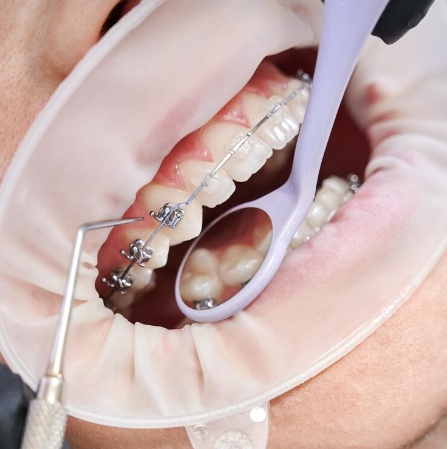In the realm of healthcare, oral health holds significant importance, influencing not just the aesthetics of a smile but also overall well-being. Dental braces, a common orthodontic treatment, play a crucial role in addressing various dental issues, promoting proper alignment, and preventing long-term complications. Let's explore the significance of dental braces in healthcare and their impact on oral health.
Correcting Dental Misalignment
Dental misalignment, commonly referred to as malocclusion, is a prevalent issue affecting individuals of all ages. It can manifest in various forms, such as overcrowding, gaps between teeth, overbites, underbites, and crossbites. These conditions not only affect the aesthetics of a smile but can also lead to functional problems, including difficulty chewing, speech impediments, and increased risk of dental decay and gum disease.
Dental braces offer an effective solution for correcting malocclusion by applying gentle pressure to gradually shift teeth into proper alignment. By realigning teeth and jaws, braces help improve bite function, enhance facial aesthetics, and alleviate associated oral health issues. This realignment not only improves the appearance of the smile but also contributes to overall oral health and functionality.
Preventing Dental Complications
Beyond cosmetic concerns, untreated dental misalignment can lead to a host of complications that impact oral health. Crooked or overcrowded teeth are more challenging to clean effectively, increasing the risk of plaque accumulation, dental decay, and gum disease. Additionally, misaligned teeth can exert uneven pressure on surrounding tissues, leading to discomfort, jaw pain, and temporomandibular joint (TMJ) disorders.
Dental braces play a preventive role in mitigating these risks by aligning teeth properly and facilitating proper oral hygiene practices. By creating a harmonious bite relationship and improving tooth alignment, braces reduce the likelihood of dental complications, thus safeguarding oral health in the long term.
Promoting Overall Well-Being
The benefits of dental braces extend beyond oral health, influencing overall well-being and quality of life. Malocclusion and dental irregularities can significantly impact self-esteem and confidence, leading to social anxiety and reluctance to smile openly. By correcting dental misalignment, braces help individuals feel more confident about their appearance, enhancing self-esteem and social interactions.
Moreover, proper alignment of teeth and jaws achieved through orthodontic treatment can contribute to better overall health outcomes. Improved bite function facilitates proper chewing and digestion, promoting better nutrition absorption and overall health. Additionally, addressing issues such as speech impediments or TMJ disorders can alleviate discomfort and enhance quality of life.
Personalized Treatment Approach
One of the strengths of dental braces lies in their versatility and adaptability to address diverse orthodontic issues. Orthodontic treatment plans are tailored to individual needs, taking into account factors such as the severity of malocclusion, patient age, oral health status, and treatment goals. Orthodontists utilize a variety of braces options, including traditional metal braces, ceramic braces, lingual braces, and clear aligners, to meet the unique needs and preferences of each patient.
This personalized approach ensures that orthodontic treatment is effective, efficient, and minimally invasive, maximizing patient comfort and satisfaction throughout the treatment process. By offering a range of options and individualized care, dental braces empower individuals to achieve optimal oral health outcomes while accommodating their lifestyle and preferences.
Conclusion
Dental braces play a vital role in promoting oral health, addressing malocclusion, and preventing long-term dental complications. Beyond cosmetic enhancements, braces contribute to overall well-being by improving bite function, alleviating discomfort, and enhancing self-confidence. Through personalized treatment approaches and advanced orthodontic techniques, dental professionals can effectively harness the benefits of braces to optimize oral health outcomes and enhance the quality of life for individuals seeking to achieve a healthy, beautiful smile.


No comments yet